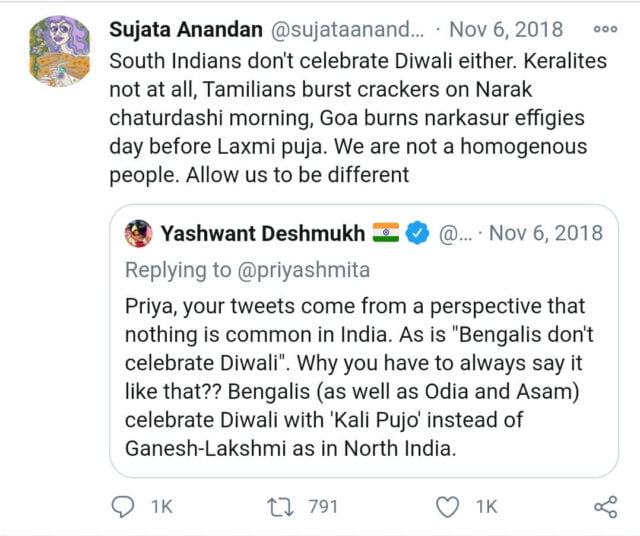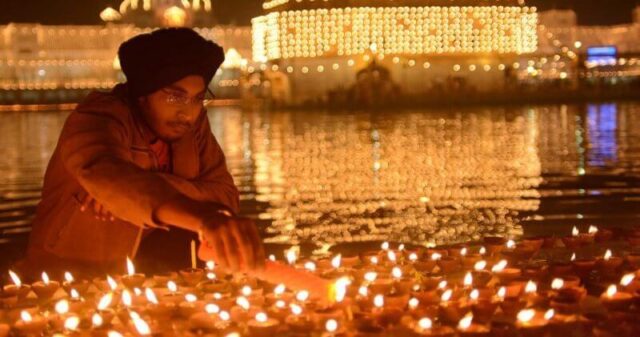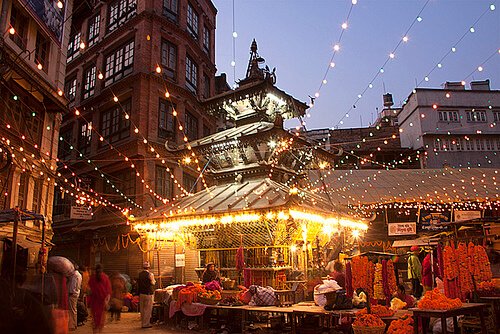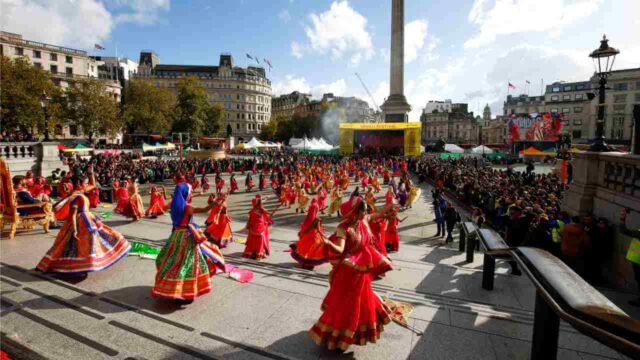We are once again at the threshold of a year ending. With the year rounding out, all of us have already switched to festive mode, thronging shops for baubles and tinsels, and most importantly, gifts.
The most celebrated festival in India during this time of the year is that of the lights, Diwali. For most of us, our humble store of knowledge has led us into believing that this Indian festival of lights is only for Hindus.
That it marks the return of Lord Rama after 14 years of exile is all true, but there are many more reasons for us to identify with the festival of Diwali, cutting across region and religion.
In a much broader sense, Diwali betokens the victory of good over evil. It is this principle virtue, shared by the other cultures, that ensures exceptional participation in these ceremonies.
Diwali Isn’t Just A North Indian Thing!
A general impression in the minds of some ignorants is that Diwali is not celebrated down south. It is absolutely incorrect. South Indians do celebrate Diwali but for a different reason, just like the Bengalis do.

According to the legends, Diwali is celebrated in the south of India to commemorate the occasion of Lord Krishna’s valour and eminence. On this day, Krishna beheaded the demon Narakasur and set free 16,000 girls from his captivity.
Bandi Chhor Divas For Sikhs
Sikhs dedicate their Diwali to the release of the sixth Guru, Hargobind Ji. He was imprisoned by Emperor Jahangir in the Gwalior fort jail as he refused to convert to Islam.

It was on Diwali that the authorities decided to let him go. Guru Hargobind Ji also requested the acquittal of the other 52 kings withheld as political prisoners with him. His appeal got accepted.
Therefore, the Sikhs celebrate Guru Hargobind Ji’s day of freedom with lights, Nagar Kirtan, and Langar.
Lord Mahavir’s Nirvana Kalyanak Mahotsav For Jainas
Jainas, complying with their simplistic lifestyle, restrict themselves from any pomp and show in their celebrations. But that does not dilute the significance of this festival in Jaina tradition. This day observes the attainment of Moksha by 24th Tirthankar, Mahavira.
Jainas have named this festival as Dipalikaya, or light leaving the body. The festivities start two days before Dhanteras and is similar to that of the Hindus.
They light lamps, worship Lakshmi and sprinkle rice and mustard after worship to keep negativity at bay. However, their chief deity of devotions is Lord Mahavira.
Also Read: Breakfast Babble: My Childhood Diwali Memories Were Made Of Bursting Crackers
What About Buddhists?
Diwali is not celebrated by all Buddhists, but by some sects. The Newar Buddhists of Nepal light lamps and worship Lakshmi and Vishnu on Diwali.
Practitioners of Vajrayana Buddhism, these devotees follow their sectarian precept of the freedom to worship any deity for their worldly betterment.

This festival of light becomes more devout for some of the Buddhists who commemorate Emperor Ashoka’s conversion to Buddhism.
Outside The Purview Of Religion
The significance of this festival is not limited to any theistic beliefs and practices. It is much more than that. The celebration of Diwali coincides with the end of the harvest season in some parts. The beginning of the sowing season in other parts of the country also happens at the same time.
It gives people many more reasons to celebrate, even if they do not adhere to a particular religion.
Globalization Did Hit Us Hard
Like our affinity to the west and immediate appropriation of festivals like Halloween and Christmas, they are equally bewitched and enchanted by our customs and traditions. The idea of the triumph of good over evil is so universal and omnipresent that it has easily seeped into other cultures.

Even the pandemic could not bring down the enthusiasm witnessed all across the world on the occasion of Diwali last week. Festivals like this do revive our hopes in such difficult times, that we are all together in this.
Image Credits: Google Images
Sources: Business Insider, Washington Post, Daily Express
Find The Blogger: @soumyaseema
This post is tagged under: diwali, jainism, hinduisim, sikhism, buddhism, guru Hargobind Ji, gwalior fort, Mahavira, Tirthankara, Krishna, Rama, Lakshmi, Vishnu, Ashoka, Nirvana, globalization, harvest, sowing, farmers, west, halloween, christmas, hope, Enthusiasm
Other Recommendations:
33 Crore Cow Dung Diyas Are Being Made For Diwali: Here’s How To Spot Them



































